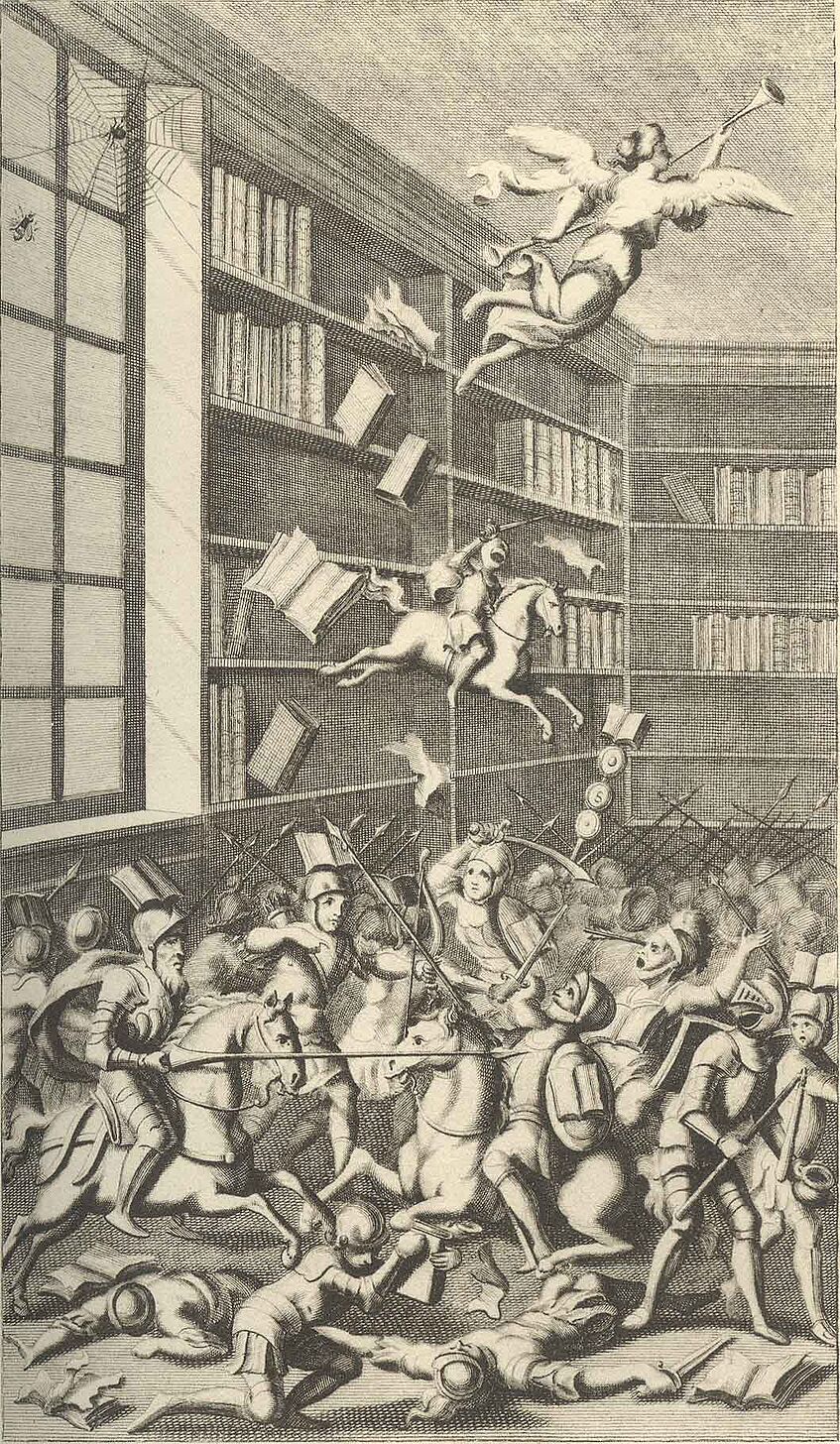The querelle that wasn't? “Old” and “New” in the intellectual culture of Habsburg Europe, 1700-1750

Illustration from "The Battle of the Books" by Jonathan Swift (1704)
The querelle that wasn't? “Old” and “New” in the intellectual culture of Habsburg Europe, 1700-1750
When the Austrian Benedictine Bernhard Pez called his anthology of medieval spiritual texts “Bibliotheca ascetica antiquo-nova” (12 vols. 1723-40), the concept of the “old-new” resonated well with how he approached historical sources: It encapsulated both his erudite “critical” distance to the past and his hope of reviving some of the virtues expressed in those sources in his own time. But more than that, tensions between old and new ideas, texts and definitions of useful knowledge also lay at the heart of many debates within the intellectual culture surrounding him. “Critical” historical research as propagated by the Maurists, Leibniz and others instigated a wide range of conflicts concerning the relationship between past and present: Far from being only a matter of theoretical interest, the authenticity of diplomas and historiographical accounts touched on theology, jurisdiction, titles of ownership and communal identities, and eventually necessitated a redefinition of the related régimes d’historicité.
Both attempts at a thoroughly rejuvenated history of ideas and pre-Enlightenment Central European history have been enjoying rising attention by historians lately; still, no systematic endeavours at combining the two have been made for decades. Building on results of more praxeologically oriented research on early modern cultures of knowledge, the conference aims at preparing the ground for a history of ideas in Habsburg Europe in an era that has too often been treated as a mere prelude to the Maria Theresian age of reforms. This latter perspective has led not only to some amount of neglect, but also to a tendency to rather one-sidedly search only for early signs of Enlightenment discourses and other progressive tendencies. Yet actually many sources of the time speak far more to their learned protagonists’ predominantly “conservative” agenda - which nonetheless not seldom presented itself under the label of innovation.
